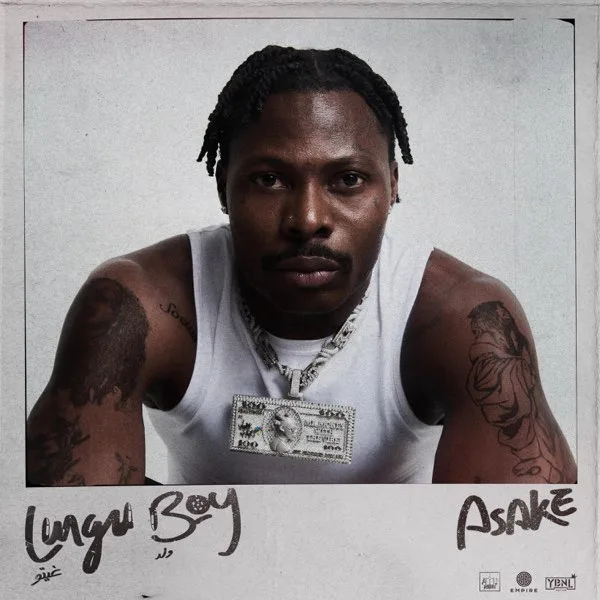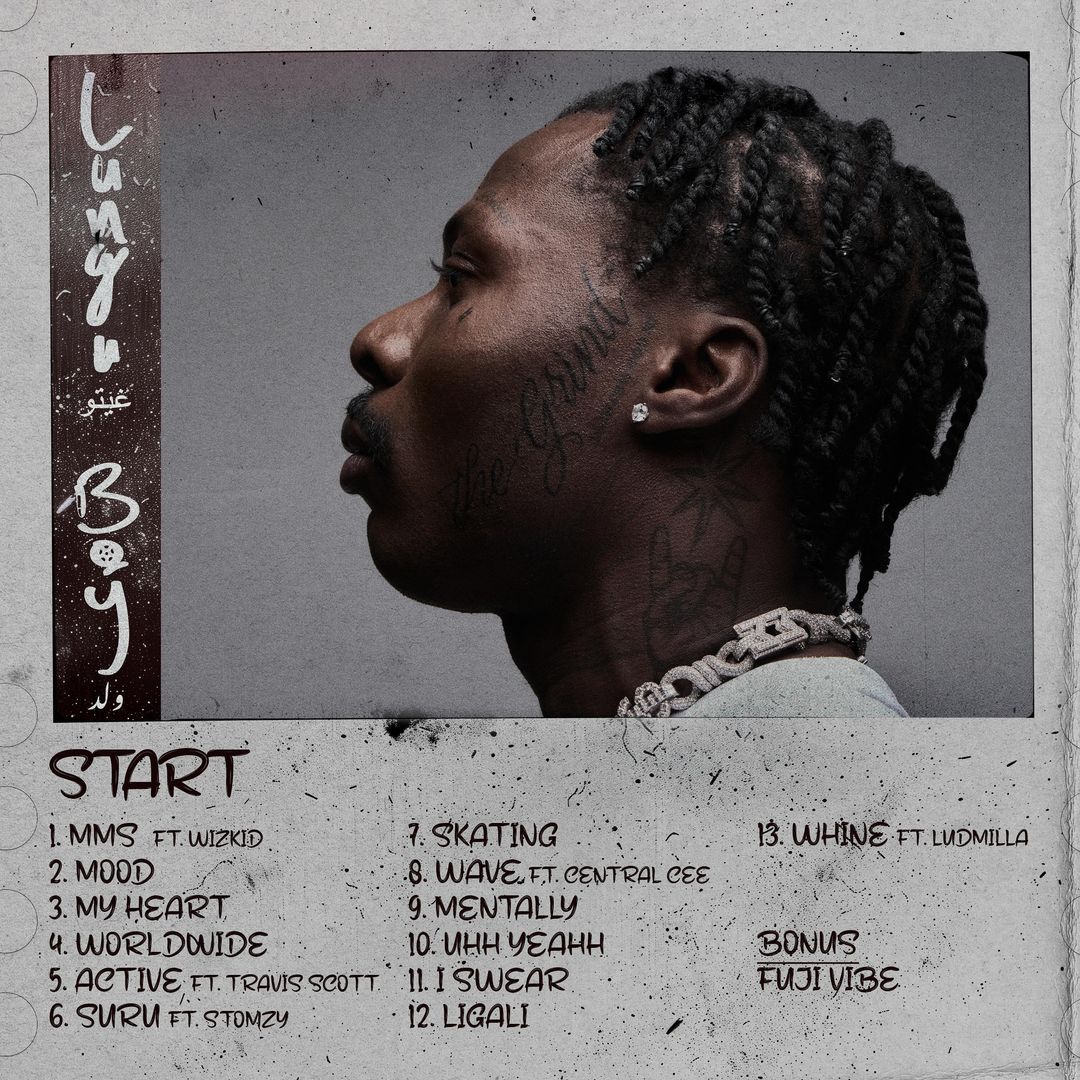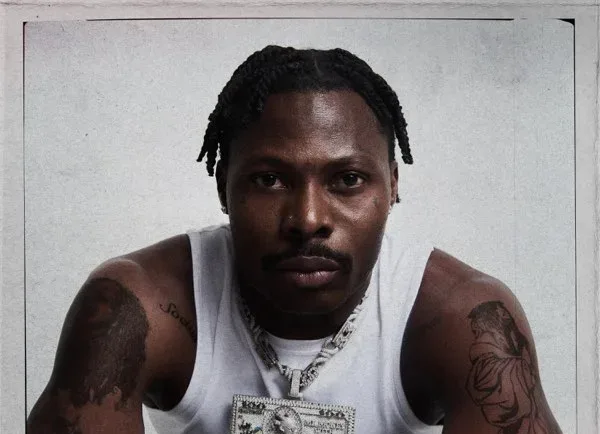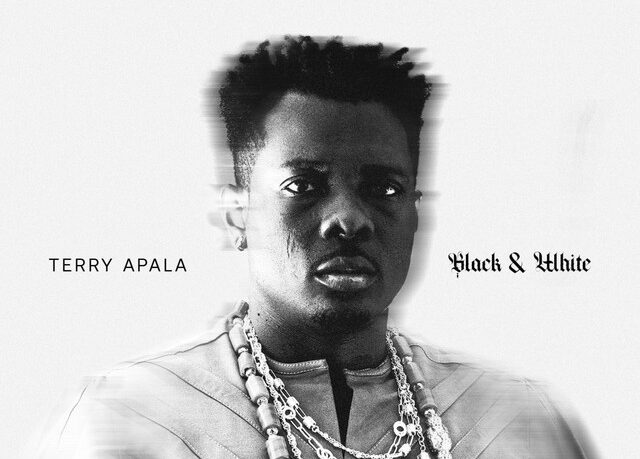Lungu Boy struggles to present a cohesive portrayal of Asake’s journey; while it seeks to chronicle his identity, it thematically omits the key aspects of his narrative.
By Abioye Damilare Samson
Three years ago, the idea that Asake would command the world’s attention seemed improbable. His meteoric rise to the pinnacle of the music pyramid is a masterclass in the popular quote, “Opportunity meets Preparation”. One moment, he was performing to a modest audience of fewer than 5,000 at the Amphitheater in Obafemi Awolowo University, the next, almost as if in a dream, he was commanding the stage at the 02 Arena in London, with 20,000 fervent fans chanting his lyrics in unison.
This remarkable trajectory to greatness reveals that, for an artiste whose music reflects the beauty and the grit of street life—encoded in raw lingua of Lagos street—his latest album title, Lungu Boy, extends beyond mere marketing gimmicks aimed at narrating a “Grace to Grace” story. It’s a genuine reflection of his roots as a young boy from the less affluent locale in Lagos.
Since ascending to mainstream Afro-Pop consciousness in 2022, Asake—with his street pop sound that fuses choir-like, crowded backing vocals with traditional Nigerian melodies and Amapiano rhythms—has always cut the image of the charismatic and magnetic personality in his stage performances and fashion style, thanks in part to the grandiose visualisations engineered by TG Omori for tracks from his 2022 breakout EP, Ololade Mi Asake, and his debut album, Mr Money With the Vibe, released that same year.
Following the massive success of his debut album, it was crystal clear that Asake was primed to elevate Afrobeats to greater heights. Without adjusting the winning formula that catapulted his debut to excellence, his second album, Work of Art, released in 2023, shattered the dreaded ‘Sophomore Slump’ phenomenon, with production catalysed by Magicsticks’s deft fusion of Amapiano, Fújì, and Hip-Hop, coupled with bouncy beats and effervescent live arrangements that distill his high-spirited lyrics into captivating melodies.
In the lead-up to Lungu Boy, Asake made a notable shift in his visual identity and released two singles off the album: “Wave” featuring British rapper, Central Cee, and “Active” with US rapper, Travis Scott. This strategic buildup heightened listeners’ expectations for the album.
As the album approached its release date, a pressing question lingered among critics and fans alike: Would it surpass or at least match the global acclaim achieved by his previous albums? For an artiste who has experienced such a historical trajectory, there is always a pressure to recreate the magic of their earlier successes. However, this often proves challenging, as recreating the enchantment of past work is frequently elusive, particularly for an artiste who has already set the bar so high.

Nothing captures the essence of Asake’s album better than a contemplative intro. On the opener, “Start,” he taps into the spiritual depth of Asa’s 2007 song, “Eye Adaba”, a classic from one of Nigeria’s most revered neo-soul voices. While Asake reflects on his growing stature—“Mr. Money steady killing show, Anywhere me I enter it’s a big intro”— he hints at ambitions that stretch beyond mere wealth or personal satisfaction. His plea, “Oh God, I’m praying, Abba father, give me more life”, unveils a desire for something more splendid, signalling a pursuit of enduring impact rather than fleeting success.
The introspection deepens on the slow-burning Wizkid-assisted track, “MMS”, where both artistes unite to reflect on life’s futility and acknowledge God as the all-knowing. P.Priime’s lo-fi production, paired with an understated bass guitar riff, sets a reflective one. Yet, it’s Wizkid’s balmy vocal and poignancy that genuinely cuts through, especially in the lines, “O ye Oloun, o ye Oloun, When mama leave me, yeah, e no long”, where he movingly recalls the loss of his mother.
When Asake steps into the realm of revelry or spirituality, his delivery usually has a crackling energy—verses bursting with raw enthusiasm. However, on the P.Priime-produced “Mood”, that usual spark seems to fizzle, lacking the grit and emotion that typically defines his sound. His attempt at incorporating Spanish lyrics feels strained as if he’s forcing a style that doesn’t come naturally.
The track “My Heart”, featuring the French-Gabonese singer, Anaïs Cardot, similarly struggles to connect. Even with the simple lyrics, the song fails to evoke the emotional depth it aims for, leaving the listener detached. The log-drum-infused “Worldwide” taps into his creative arsenal, where his streetwise lingua takes centre stage. He confidently reasserts his global dominance, chanting, “Worldwide, E don go oh, Mr Money Worldwide, E don go oh, Worldwide (Worldwide)”.
The pre-released stateside collaboration, “Active”, featuring Travis Scott, creatively interpolates Adewale Ayuba’s vocals from Jazzman Olofin’s 2004 Fuji-Hip hop classic, “Raise the Roof”, fusing them with vocal samples from Erick Bardales’ 504 bounce vocal pack and a bassline nod to C & C Music Factory’s 1990 “Gonna Make You Sweat (Everybody Dance Now)”.

It’s one of the album’s most hard-hitting tracks, but the intensity finds its counterpoint in “Suru”, featuring Stormzy. This track, with the rhythmic interplay of saxophone and talking drum, draws from Musili Haruna Ishola’s renowned lyrics, “Ise Oluwa Ko Seni Toye”, delivering a message of patience. Stormzy’s line, “God’s children can never be failures, Mysterious ways that he works in, but he’s still working, certain”, elevates the song to a gospel-tinged anthem.
While Work of Art drew inspiration from the life and work of Jean-Michel Basquiat for its rollout, Lungu Boy finds its muse in skateboarding. Embracing skate culture as a key element of the album’s branding, he dedicates a track to it with “Skating”. The song excels with its punchy beat that mirrors the energy of a skate park, yet the flow falls slightly short, lacking the fluidity that the theme demanded.
The album finds a new burst of energy with the Central Cee-assisted “Wave”, where razor-sharp verses by Asake and rap delivery of Central Cee makes the track hypnotizing. The momentum is propelled into “Mentally”, where he revels in his success, declaring with conviction: “Emi fe lavi da local ki n jegbadun, I swear”. The EDM-Fuji hybrid “Uhh Yeahh”, stands as a bold fusion where the brilliance of Sarz’s production truly shines. He artfully blended resonant bass lines and synths with Sakara, the traditional drum central to Were music.
“I Swear” exemplifies his signature sound, maintaining the core elements of catchy hooks and melodic flows offering a fresh yet familiar listening experience. Beneath the surface, a resonant piano chord subtly infuses the track with life. “Ligali” introduces a breezy levity that offsets what would typically be a high-octane party anthem, yet still encourages gyration with the log-drums and the trumpet laced with the chorus.
True cross-cultural explosion unfolds with Brazilian singer, Ludmilla, on the sultry, seductive bounce of the Caribbean Dancehall joint “Whine”, which subtly interpolates Mary J. Blige’s 1992 “Real Love”.
The project climaxes with “Fuji Vibe”, the track that had already garnered widespread anticipation after its polished rendition was teased during his Edmonton concert. As a homage to core Fuji music, the song draws slightly from the distinctive instrumental arrangements that characterise Adewale Ayuba’s “Ijo Fuji”, released in 2004.

Lungu Boy is Asake’s third album, representing the first nuanced shift from the formulaic cadence that once served as the gateway sound to his mainstream success. With 15 songs—and only two produced by his trusted collaborator, Magicsticks—Asake explores several soundscapes with top Afrobeats sonic architects like P.Prime and Sarz to propound sonic palettes that merge Fuji sound, EDM, hip-hop and Amapiano to create a genre-spanning cocktail of sounds.
Strategically, the album’s features aim to bridge local and international markets by blending core Afro-pop with Fuji influences and sampling classic songs to appeal across cultures. However, some tracks fail to convey the enthusiasm and inventive lyricism that are hallmarks of Asake’s artistry—resulting in a noticeable drop in engagement. It struggles to present a cohesive portrayal of Asake’s journey; while it seeks to chronicle his identity as the boy from the Lungu, it omits the key aspects of his narrative thematically.
Nevertheless, it’s refreshing to witness an artiste who is unarguably one of Nigeria’s serial hitmakers, daringly embrace experimentation that pilots us on a thrilling journey through uncharted sonic territories.
Lyricism – 0.9
Tracklisting – 1.0
Sound Engineering – 2.0
Vocalisation – 1.5
Listening Experience – 1.0
Rating – 6.4/10
Abioye Damilare is a music journalist and culture writer focused on the African entertainment Industry. Reading new publications and listening to music are two of his favourite pastimes when he is not writing. Connect with him on Twitter and IG: @Dreyschronicle
Sign Up to Our Newsletter
Get notified about exclusive offers every week!











